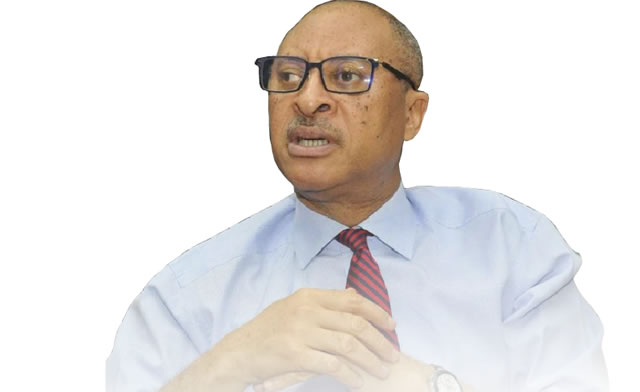Pat Utomi, a prominent Nigerian political economist and former presidential candidate, has vehemently denounced a lawsuit filed against him by the Department of State Services (DSS) as an act of cowardice and a blatant attempt to suppress free speech. The lawsuit, spearheaded by Senior Advocate of Nigeria Akinlolu Kehinde, alleges that Utomi’s “Big Tent Coalition Shadow Government,” launched in May 2023, seeks to destabilize the country. Utomi, however, maintains that the coalition’s objective is to provide constructive criticism of the current administration, propose alternative governance models, and foster a more robust democratic discourse in Nigeria. He views the DSS’s actions as a distraction from the real issues plaguing the nation, including the blatant disregard for constitutional provisions regarding party defections by those in power.
Utomi’s “Big Tent Coalition Shadow Government” is comprised of members from various opposition parties. Its primary aim is not to usurp power or incite chaos, but rather to serve as a watchdog, holding the government accountable and offering alternative policy proposals. This initiative, according to Utomi, is particularly crucial in the current political climate where numerous politicians are allegedly flouting the constitution and engaging in unethical practices. He argues that the coalition acts as a vital check on power, ensuring that the government remains responsive to the needs of the people and adheres to the principles of good governance.
The lawsuit has sparked widespread outrage and condemnation from various quarters. Utomi’s supporters, energized by what they perceive as an attack on freedom of expression, have pledged to mobilize legal support for his defense. He has expressed gratitude for this outpouring of support, seeing it as a testament to the enduring spirit of resistance against oppressive tactics. Utomi frames the lawsuit as a symptom of a deeper malaise within the Nigerian political system – a system where the pursuit of personal gain often overshadows the collective good. He criticizes those in power for prioritizing their own self-interest over the future of the country and its citizens.
Utomi emphasizes the importance of upholding the Nigerian constitution, particularly in the context of party defections. He argues that politicians who defect from the parties on whose platforms they were elected should have their seats declared vacant, as stipulated by the constitution. He challenges the DSS to focus its efforts on prosecuting such violations of the law rather than pursuing what he considers to be frivolous lawsuits aimed at silencing dissent and stifling legitimate political discourse. He sees the DSS’s focus on his shadow government as a diversionary tactic, meant to distract attention from more pressing issues.
The concept of a shadow government, according to Utomi, is not new to him. He claims to have first proposed the idea approximately 14 years ago as a mechanism to strengthen Nigeria’s democracy. He believes that such a body is even more essential today given the alleged disregard for the constitution by some members of the political class. Utomi argues that the “Big Tent Shadow Government” fills a critical void in the Nigerian political landscape, providing a platform for alternative voices and challenging the status quo. He sees it as a necessary counterbalance to the power wielded by the ruling party, especially in light of allegations of impunity and corruption.
Utomi frames the ongoing struggle as a battle between those who prioritize wealth and power and those who are committed to the future of Nigeria. He calls on all people of conscience to resist what he perceives as a descent into darkness, urging them to defend the principles of democracy and good governance. He believes that the future of Nigeria hinges on the willingness of its citizens to hold their leaders accountable and demand adherence to the rule of law. He sees the “Big Tent Coalition Shadow Government” not just as a political strategy, but as a moral imperative in the face of what he views as a growing threat to Nigeria’s democratic ideals.


